Peter Robinson, crime writer whose award-winning DCI Banks novels were unafraid to tackle gritty subjects – obituary
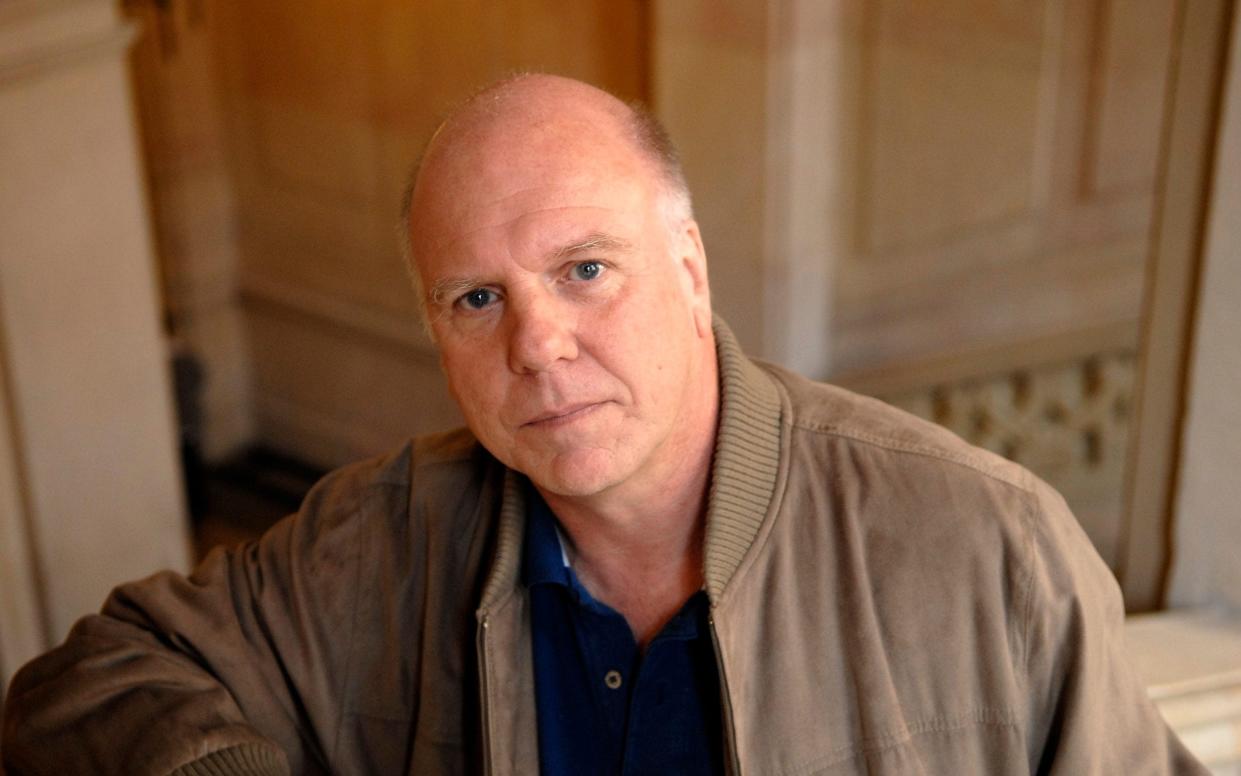
- Oops!Something went wrong.Please try again later.
- Oops!Something went wrong.Please try again later.
- Oops!Something went wrong.Please try again later.
Peter Robinson, who has died aged 72, became one of Britain’s most successful crime writers as the creator of the dogged DCI Alan Banks, hero of a series of Yorkshire-set novels that spanned 35 years and sold more than 10 million copies.
Brought up in Leeds, Robinson lived for most of his adult life in Canada. When he created the fictional Dales market town of Eastvale as the setting for the first DCI Banks novel, Gallows View (1987), his primary aim was to stave off homesickness.
The disturbing intrusion of brutal murder into the books’ drowsy countryside backdrop was a formula that Robinson deployed successfully for decades. Even those who had never tramped the Dales found themselves transported there by Robinson’s evocative writing, and latterly he gained a large international audience. Dennis Lehane acclaimed the Banks novels as “chilling, evocative, deeply nuanced works of art”; Stephen King hailed “the best series of British novels since Patrick O’Brian”.
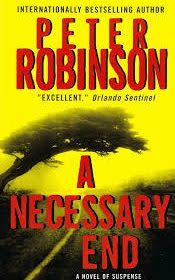
Robinson was far from an overnight success, however: “in the mid-90s I was dumped by my US publisher and barely had my head above water in the UK,” he recalled in 2019. His determination to make Banks an “ordinary everyman” meant that the character was initially overshadowed by more flamboyant coevals such as Morse, Rebus and Dalziel.
It was his unshowiness, however, that his admirers appreciated. “Banks’s … very ordinariness makes him all the more convincing,” asserted The Times’s crime critic Marcel Berlins in 2005. “Robinson’s (and Banks’s) quiet style has perhaps led to his being underrated; but make no mistake, he’s among the very best.”
Robinson’s fortunes began to turn in 2004 when his new publisher Hodder & Stoughton, who had poached him from Pan Macmillan in a rumoured £1.4 million four-book deal, began an aggressive marketing campaign.
Readers began to fall for Banks in the hundreds of thousands. Part of the appeal of Banks – a London copper who had transferred to Yorkshire for a quieter life only to find the Dales lousy with corpses – was his buttoned-up nature, with readers keeping on buying the books in the hope of getting to the bottom of his character.
As the years passed Banks was promoted to superintendent, but became ever more dour as his marriage failed. “However, while he has become more of a loner, he hasn’t lost his sense of idealism,” Robinson declared in 2010. “Despite his flaws, it’s that moral core which makes him attractive, I think, to readers.”
Robinson was always admired for his skill in constructing plots, but the books also became more engaged with serious issues as the series progressed. When The Music’s Over (2016) – which took Robinson, normally a book-a-year man, two years to write – was much admired for its ambitious interweaving of storylines involving two topical themes: a celebrity who exploits his fame to prey on underage girls (inspired by Jimmy Savile, a prominent figure in Leeds when Robinson was a teenager), and Asian grooming gangs.
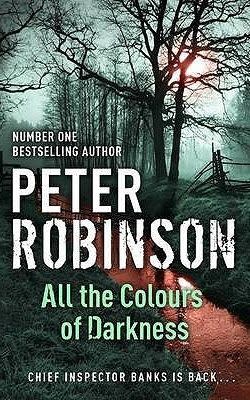
What linked the cases, Robinson noted, was the harm caused by “other people or institutions who might have known what was going on but never said anything and did not follow up on allegations”.
His profile received a further boost with DCI Banks, an ITV drama with Stephen Tompkinson in the lead role, which ran for five series between 2010 and 2016. It was well-received, but most of the episodes were original stories rather than dramatisations of Robinson’s work, and, as he observed, “most of my long-term readers didn’t like the TV series much … They have their own ideas of what [Banks] was like.”
Robinson admitted to little similarity between himself and Banks, except for their eclectic taste in music. “I don’t think I could do his job, be a policeman. I don’t like the sight of blood for a start. And he could not do my job because he hates writing reports and hates the administrative side of the job.” He was particularly proud whenever he received the seal of approval from serving police officers: “They say: ‘Banks is all right, he’s one of us’.”
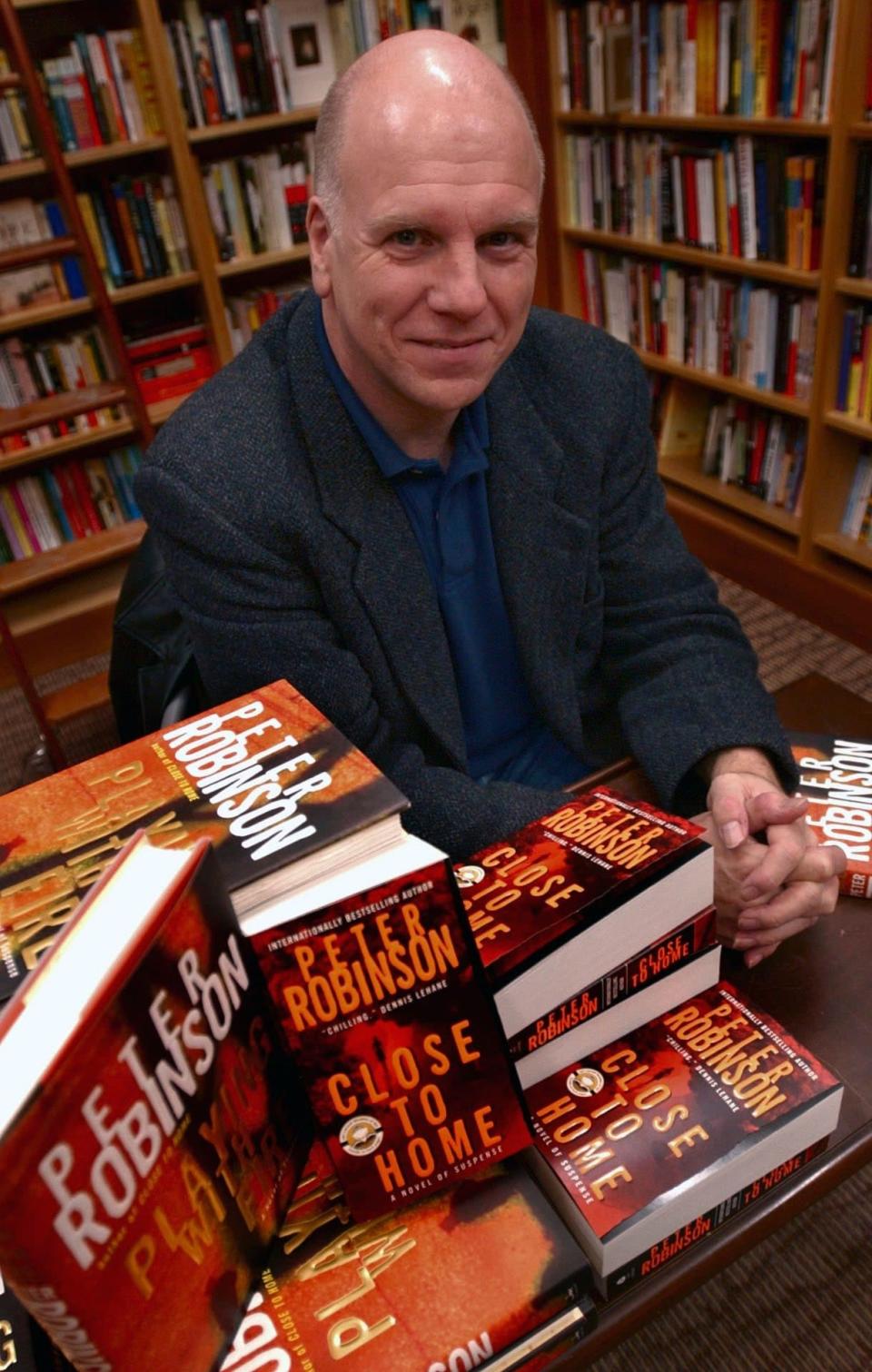
Peter Robinson was born in Castleford, West Yorkshire, on March 17 1950, the son of Clifford Robinson, a rent collector, and his wife Miriam, a cleaner. The family subsequently moved to a one-up one-down terraced house in Armley, Leeds, sharing a privy with several other families. In the 1960s they lived in one of the new council estates.
After leaving school he worked in a yeast factory (“which I wouldn’t recommend – it’s hard to get rid of the smell”) before reading English Literature at the University of Leeds. Wanderlust took him on to an MA at the University of Windsor in Ontario.
His ambition was to be a poet. The American novelist Joyce Carol Oates was teaching at Windsor, and was so impressed when she heard him recite his work, she asked him why he was not enrolled on her writing course. “I applied for it, but you turned me down,” he replied. She reversed her decision and became an early mentor.
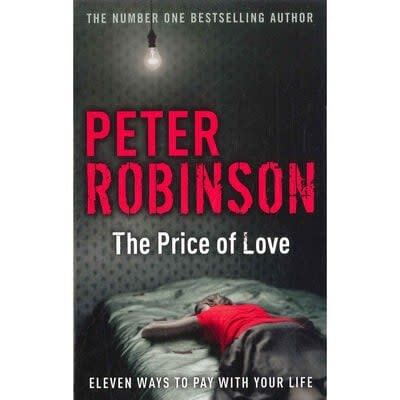
Robinson went on to take a PhD at York University in Toronto, on the subject of “The Sense of Place in Contemporary British and Irish Poetry”. In Toronto he met his future wife, Sheila Halladay, a lawyer, and decided to settle there.
A fan of crime fiction ever since his father introduced him to Chandler and Simenon, he wrote three unpublished thrillers “that should probably be burned” before he finally found a publisher for the first Banks novel. He worked part-time teaching and lecturing before becoming a full-time writer in 2000.
To gain material on police methods, he accompanied officers on the night shift in Toronto. At one point they were all in pursuit of an armed suspect on foot, and Robinson nervously asked if it might not have been wiser if he had stayed in the car. “No, you’ve signed a waiver, it’s fine,” came the reply – meaning, “It’s all right if you get killed, we’re not to blame.”

Robinson would return for two months or so every year to Yorkshire, where he had a house in Richmond, in order to reconnect with the settings for his books – “I do need to smell the smells, hear the voices and see the sights” – and stock up on Yorkshire Gold tea. His accent was not a whit diluted by half a century’s residence in Canada. From 2009 he funded a scholarship at the University of Leeds to help students from poorer backgrounds with an interest in English to cover their “beer and books money”.
Peter Robinson is survived by his wife, to whom he dedicated every one of his novels. The 28th and final Alan Banks novel, Standing in the Shadows, will be published next March.
Peter Robinson, born March 17 1950, died October 4 2022

